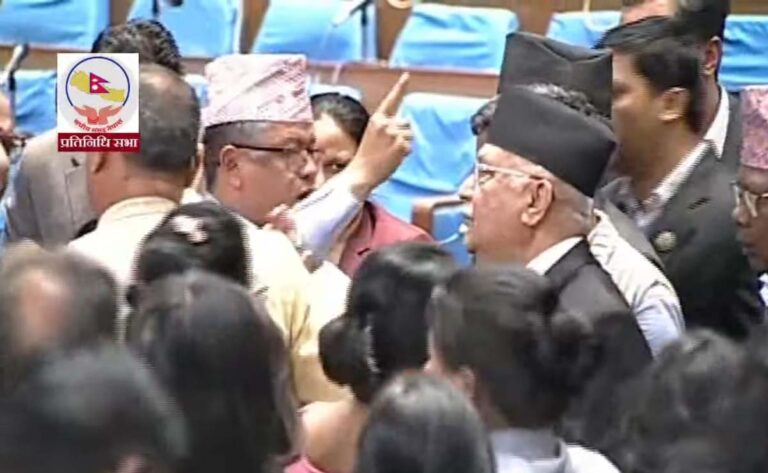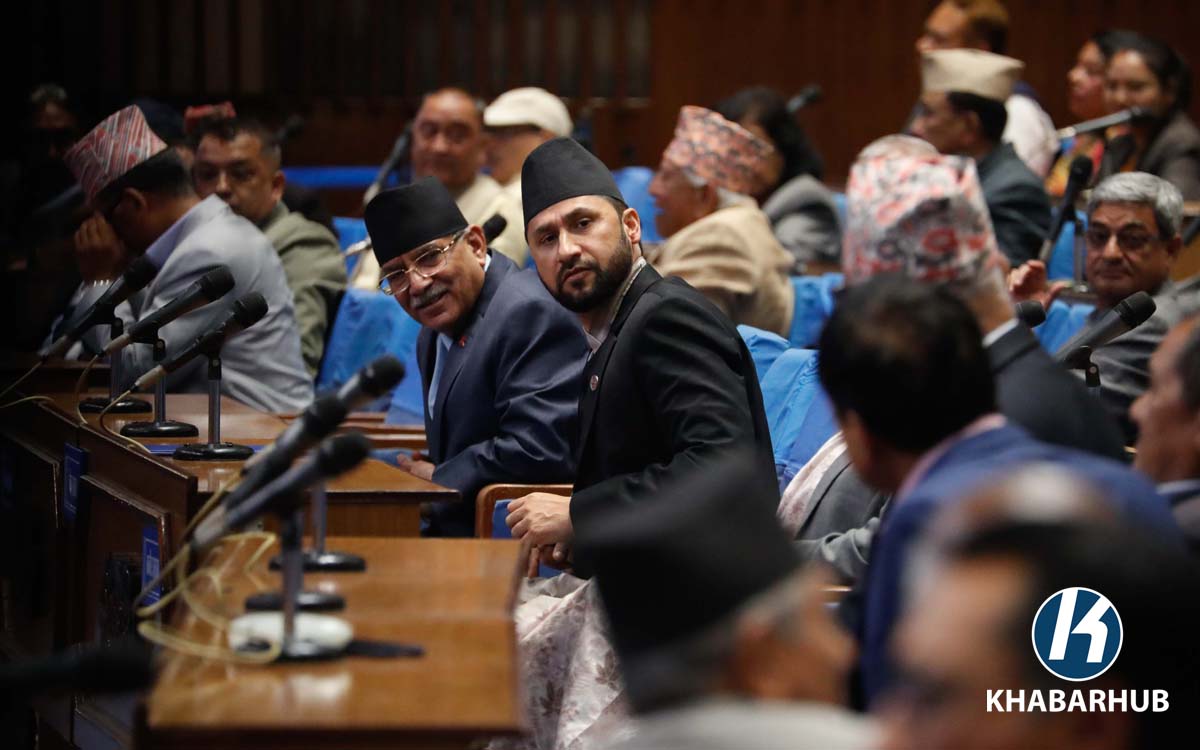KATHMANDU: Prime Minister (PM) Pushpa Kamal Dahal is scheduled to seek a vote of confidence on May 20.
Currently serving his third term, this will be the fourth time PM Dahal is taking a confidence vote.
PM Dahal’s announcement comes at a time when the main opposition party, Nepali Congress, is continuously obstructing parliamentary meetings.
During a recent session, a heated exchange between the Chairman of CPN-UML and the Vice President of Nepali Congress escalated into a scuffle between lawmakers of the two parties.

PM Dahal and Deputy PM and Home Minister Rabi Lamichhane remained silent during the incident.
In a bid to counter the Nepali Congress’s moves, PM Dahal decided to seek a vote of confidence.
The Nepali Congress is currently deliberating the issue in its parliamentary party meeting on Friday morning.
A leader of the Nepali Congress told Khabar that PM Dahal’s decision to seek a vote of confidence during a budget session is puzzling.
Amid escalating disputes in parliament, PM Dahal wants to demonstrate his power and confidence.
With this decision, the CPN (Unified Socialist), led by Madhav Kumar Nepal, must now decide whether to vote for or against the PM.
Although the Supreme Court has not recognized the split of the Janata Samajbadi Party Nepal, the party’s lawmakers’ votes are expected to be divided.
This move by PM Dahal is likely to deepen the rift between political parties.
However, according to the Constitution, PM Dahal has the right to seek a vote of confidence whenever he deems necessary.
What’s in the Constitution?
As per Article 100 of the Constitution of Nepal:
The Prime Minister may table a motion for a vote of confidence in the House of Representatives whenever he or she considers it necessary to show that he or she has confidence from the House.
If the political party the Prime Minister represents is divided or if a coalition partner withdraws its support, the Prime Minister must table a motion for a vote of confidence within thirty days.
If the motion is not adopted by a majority of the total members of the House of Representatives, the Prime Minister shall be relieved of office.
One-fourth of the total members of the House of Representatives may table a motion of no confidence in writing against the Prime Minister.
However, a motion of no confidence cannot be tabled until the first two years after the Prime Minister’s appointment and until one year after the failure of a previous no-confidence motion.











Comment